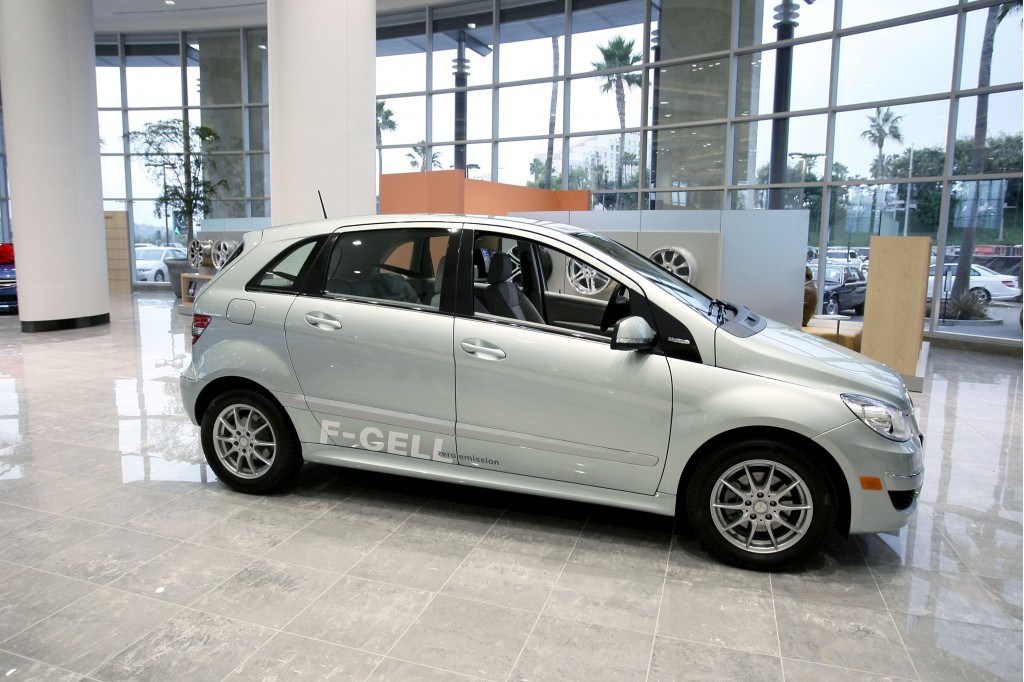It appears that the U.S. Department of Energy has had a change of heart.
Four years ago, then-Energy Secretary Steven Chu was widely known as a skeptic about hydrogen fuel-cell vehicles.
Last summer, he appeared to relent--and now the DoE has said it will launch a campaign to promote hydrogen fueled cars, tentatively deemed H2USA.
According to a writeup in trade journal Automotive News, the campaign is as much about symbolism and convincing municipalities and the industry that there is support for further tests of hydrogen cars.
The article notes the campaign won't be lavishly funded, contrasting the modest effort to the expansive funding for hydrogen vehicles a decade ago under President George W. Bush.
One of the initiative's tasks will be to advocate for funding and construction of the hydrogen refueling stations that will be needed if Toyota, Honda, and Hyundai bring hydrogen vehicles to market in 2015 or thereafter, as they have said they will.
Those automakers feel that hydrogen-fueled cars are still important as one way to travel with zero emissions without the range anxiety of most battery-electric vehicles today.
Not every global carmaker agrees; Volkswagen CEO Martin Winterkorn said hydrogen cars are unviable as a future technology just two weeks ago.
Today, there are likely no more than 200 hydrogen-fueled vehicles operating regularly on U.S. roads.
General Motors has about 25 of its "Project Driveway" Chevrolet Equinox Fuel Cell Vehicles on the road at any given time, according to Shad Balch, GM's Manager, Environment & Energy Policy and Communications.
"These are the same vehicles we used in the Project Driveway program from 2008 through 2011," Balch said.
"We have a dozen in Hawaii and two in California at the Camp Pendleton Marine base, participating in a Department of Defense program. We're also putting miles on six vehicles as part of a data-driven program by the DoE."
Honda has leased roughly 25 of its FCX Clarity fuel-cell cars to California drivers as well; the mid-size sedan was the first dedicated hydrogen vehicle to be offered to the public when it went on sale in 2008.

First Mercedes-Benz B-Class F-Cell hydrogen fuel-cell vehicle delivery, Newport Beach, Dec 2010
Mercedes-Benz has had a fleet of up to 70 B Class F-Cell vehicles operating in northern and southern California since 2011 as well.
While Mercedes-Benz recently partnered with Ford and Nissan on development of hydrogen fuel-cell vehicles, a two-year delay in its plans to offer a production hydrogen car was buried in the announcement.
By the end of 2015, there will likely be 500,000 of more plug-in electric vehicles on U.S. roads.
While that's short of President Obama's ambitious goal of 1 million such cars in 2015, it will outnumber the hydrogen vehicle population by two to three orders of magnitude.
What do you think? Should the U.S. devote Federal funding to hydrogen fuel-cell vehicle rollout and infrastructure? And what are the right conditions for these cars to succeed in the market?
Leave us your thoughts in the Comments below.
[hat tip: Brian Henderson]
+++++++++++













